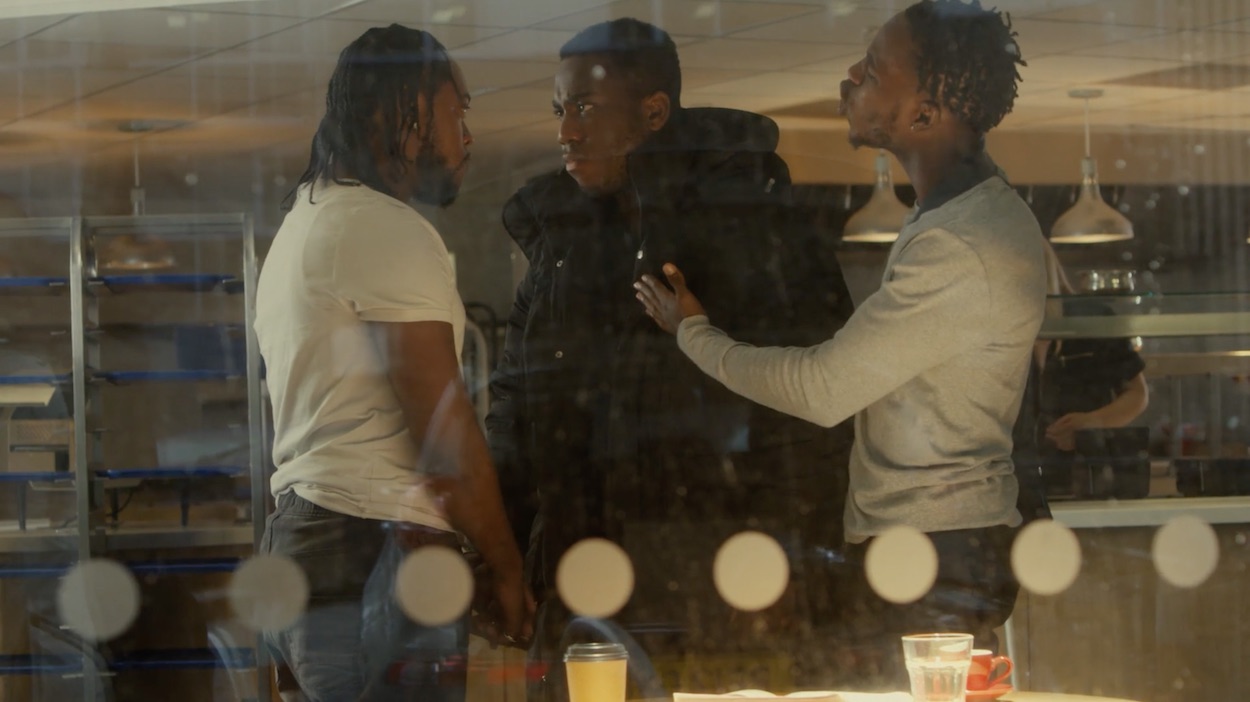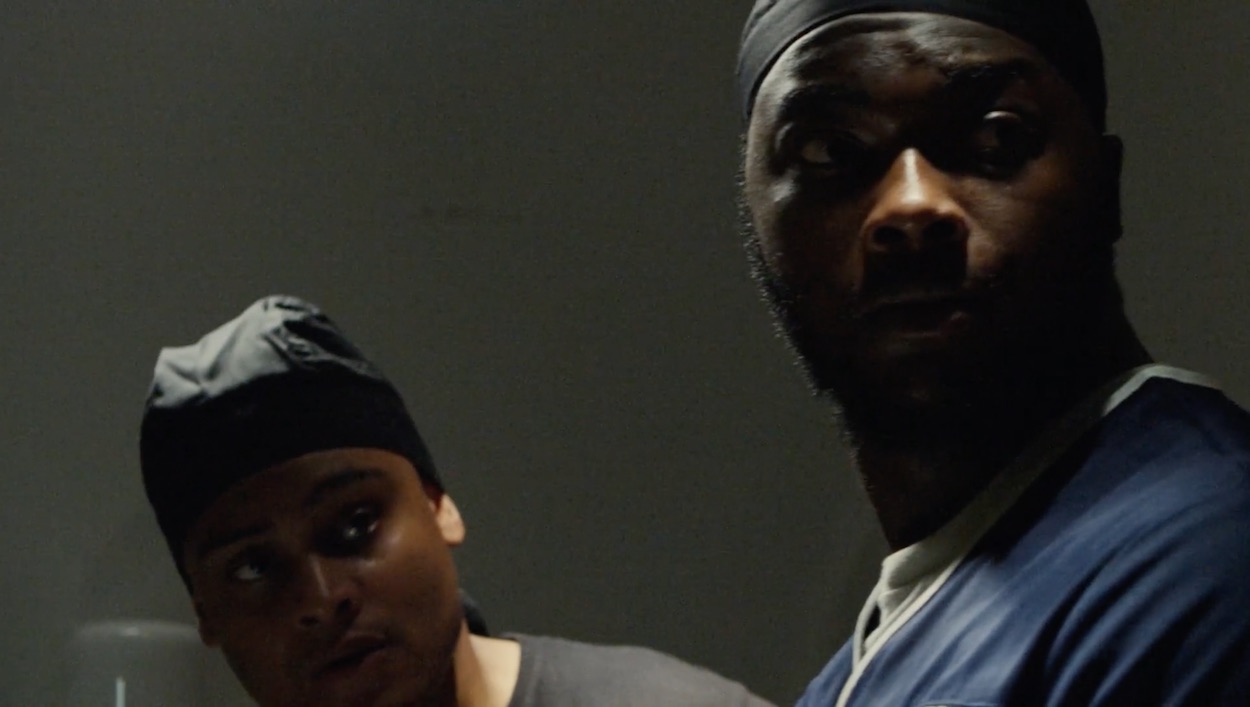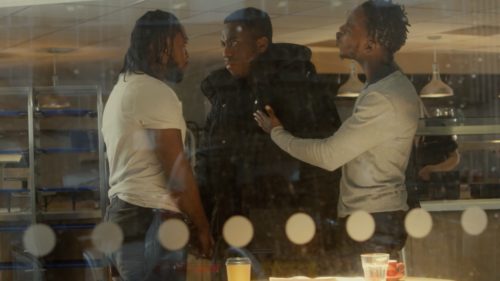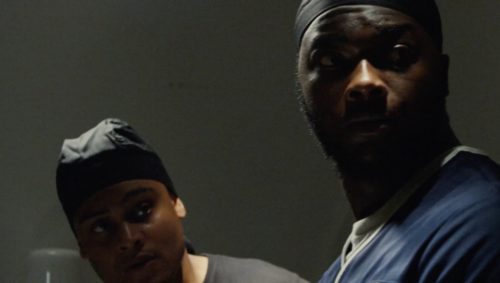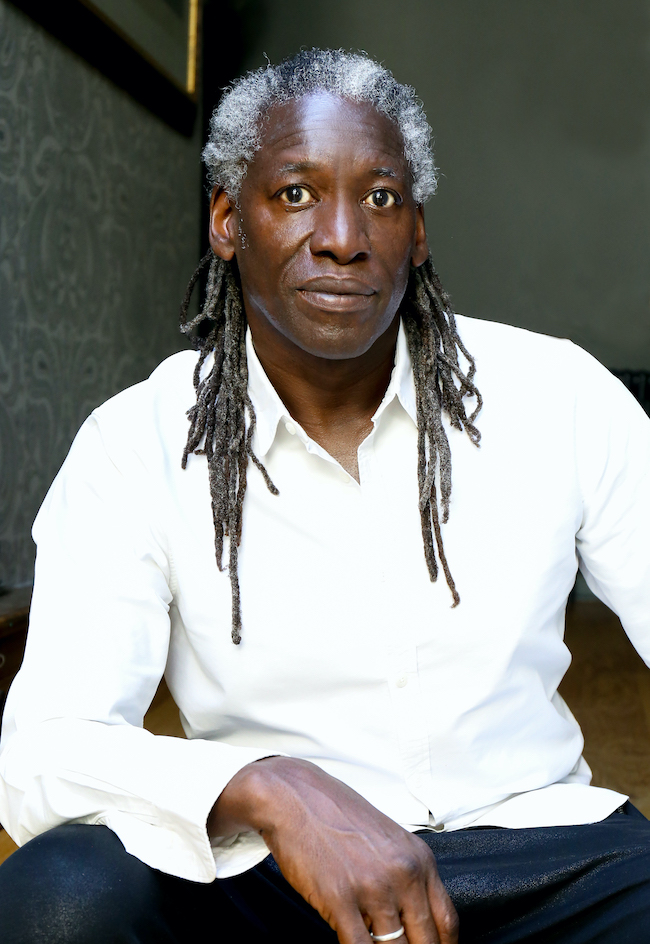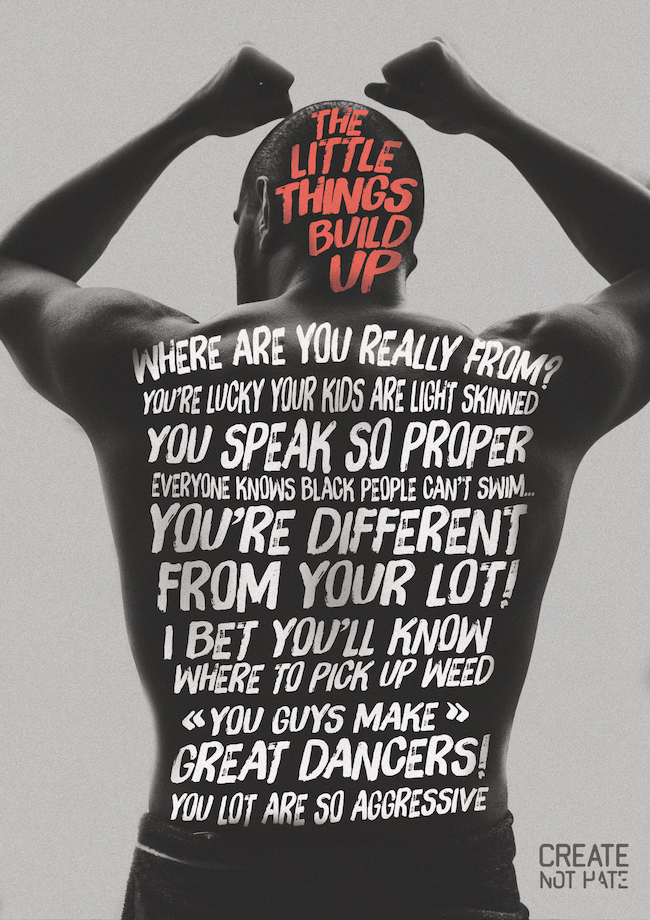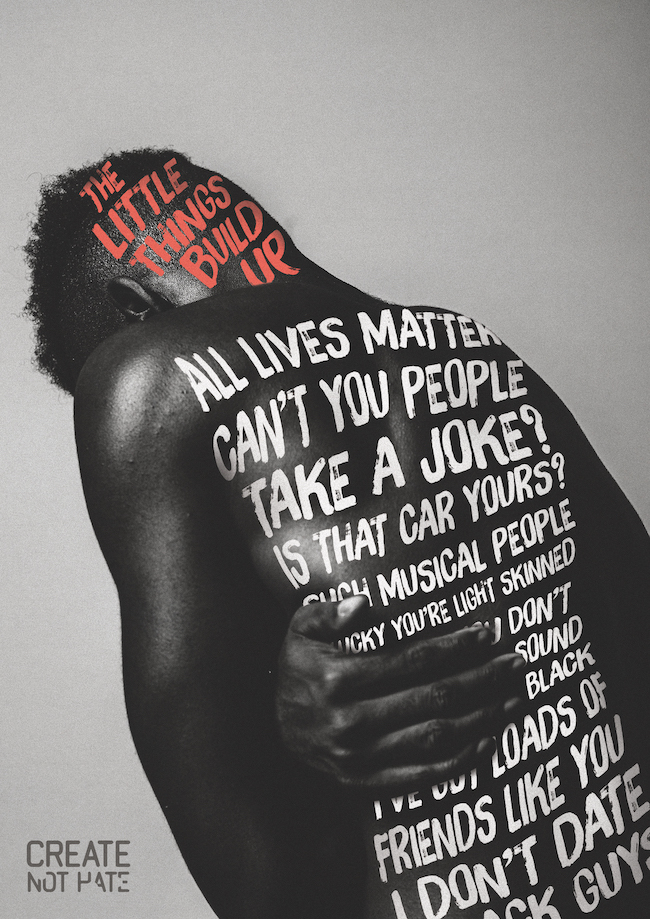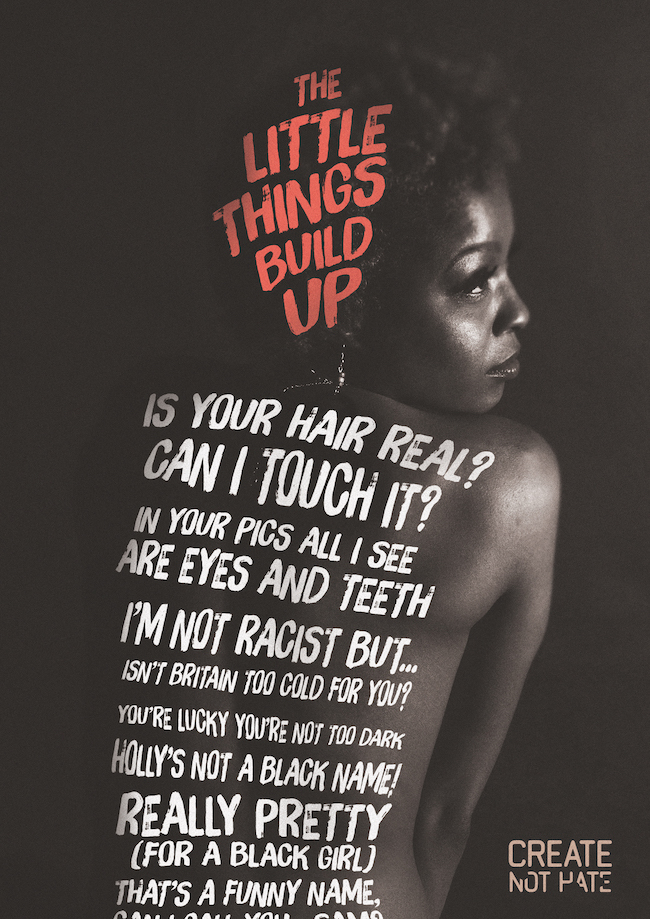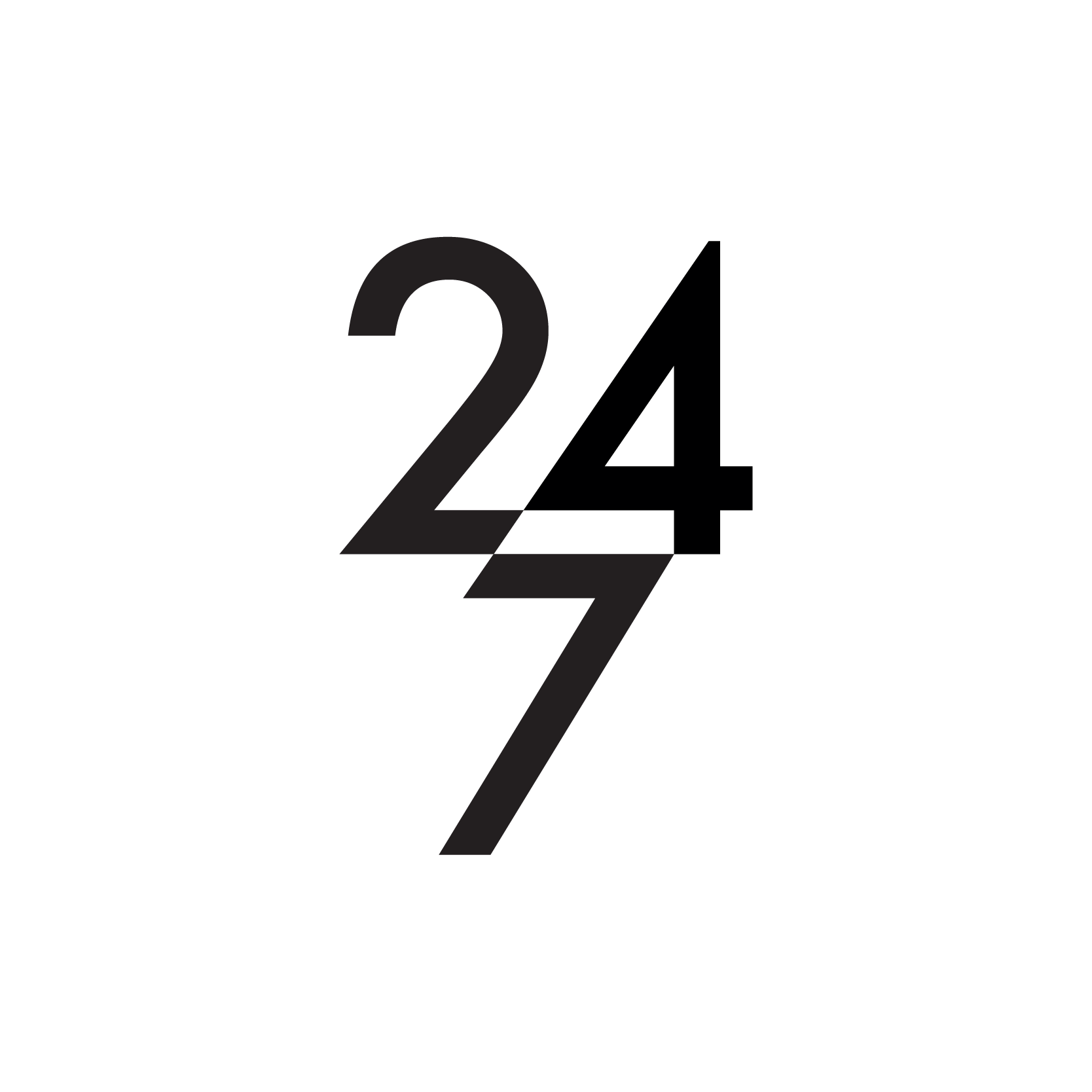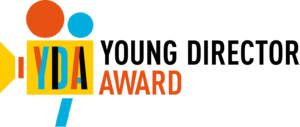Trevor Robinson
You originally founded the Create Not Hate initiative back in 2007 – has the program been running in the intervening years or did you bring the concept back for this new activation? And as a POC working within advertising could you please share your perspective on whether, and if so how the industry has changed over that time?
The first time I started this initiative, frustration quickly set in. I was aware of young, black talent not being utilised. But I was also trying to change the situation all by myself. I soon realised it wasn’t sustainable without backing. I suppose I was a bit naïve.
This time, my wife has got involved. We have approached people to get backing and we are being more clever about it. We are aiming for funding, approaching clients and the government.
Sadly, I still think the industry is heavily middle class, with a lack of diverse representation. Running and working in your own agency, it’s hard to get a gauge on it, but the situation doesn’t look that different, to me, today. I’m still just as aware of under-utilised talent. And, as a result, the industry is suffering. Lack of diversity affects the standard of work coming out.
It seems somewhat striking that so many elements of black diaspora culture have become inextricably woven into the fabric of mass culture and advertising – sports and lifestyle brands being the prime suspects – yet the representation of those diverse cultures, communities, sensibilities and perspectives is still largely written, produced and directed by people outside of that sphere. Call it like it is – advertising is and historically has been quick to absorb and commodify culture for commercial benefit, regardless of any intention to drive inclusion on the side of producing that commercialized culture so long as consumption by the groups depicted increases.
Yet at the same time there are complex and nuanced conversations around the place and function of positive discrimination as we look to drive inclusion and diversity through our industry. Can you speak to the difficulty of these challenges (if you see there being a challenge here?) and how we can assure that we’re not replacing discrimination or uncoscious bias with politically correct tokenism? Surely the cultural shift has to be more far reaching, more deeply absorbed on a personal moral and critical level and more profound than simply turning board rooms into reimagined United Colours of Benetton commercials?
No boardrooms look to me like reimagined United Colours of Benetton commercials. I still walk around and I’m the only black person there. There are a select few coming up with ideas for the masses. As ad agencies, we need to speak to people who are living the problems we are seeking to address – or, at least, we should do research with them to dig down into the psychology.
Nike does this well. As a brand, I think it is a step closer than most. When I was judging the Cannes Lions last year – I was president of the Cannes Lions Industry Craft jury – Nike’s conversion of an abandoned church into a sports centre for kids took the Grand Prix. Kids were getting shot on basketball courts, so the brand turned it into an indoor court: a safe haven. It wasn’t a TV commercial, but it was about interacting with the community – that was what was great about it.
As for appropriation, I think that’s often nonsense. We can be so quick to label and try to put people into specific sections or pigeonholes. Personally, I’m not keen on ‘owning’ hairstyles or brands. I spend most of my time looking at the white world but that doesn’t mean I am trying to own it.
Posters created by 16-year-olds Raphael and Jaiden with Jenelle, Princess and Oshea.
How did Create Not Hate go about reaching out to participants, what did that initial submission and selection process look like (was there a brief you invited a response to?) and how did you settle on the winning work by Emmanuel?
We reached out to Debate Mate, Masbro Youth Centre and Merton Council – to organisations whose outreach partners linked us up with schools with a high quota of pupils on free school meals. We also reached out to ex-offenders and groups of underrepresented young people who were not in employment or training.
We had to turn it all around quickly, though, in order to launch at the time of the Carnival. Next time we will be more structured. We want to work with each of the London boroughs and also to spread out throughout Britain, and not just focus on advertising, either.
There was so much good work coming out. We wanted to do all of it. Fortunately, the gauntlet is now being picked up by other agencies, too. But I loved kids’ ideas and energy. At first some were cynical, but we told them we were going to deliver on our promises – and we did.
Can you talk about the collaborative and creative process the students were mentored through to bring these first two films to life?
I worked very closely with the kids on their ideas.
There were hands-on workshops for all, including those who didn’t get their ideas made. This allowed them to experience different areas of the production process such as design, editing, production and creative development.
For those kids whose ideas were made, each was mentored by industry professionals through the creative development and production in order to expose them to every part of the process.
It was so important that the dialogue was authentic. I wanted peoples’ prejudices to stare them in the face.
As a 55 year old black guy, I don’t always have the ability to get it right – to understand the slang – but we took care to avoid stereotypes. The kids were involved in everything. It was their work. I wanted the audience to feel a tug in their guts.
We all have prejudice. It was incredibly important that the process enabled the young people to feel they really owned and could be proud of their work. They were all their ideas.
When it comes to the mentoring process, I look for people who have exceptional creative minds and who are good spirited.
Multi-award winning creatives are involved and, at first, both sides have real trepidation on their faces – the mentors and the kids. Sometimes they can underestimate how it feels if you are the only white face amongst a sea of black faces – when the situation is reversed.
But there is exhilaration too; it’s cathartic all round.
And we’ve got more films from Create Not Hate to look forward to in October during Black History Month – could you give us a little tease as to what to expect from this partnership with the Ridley Scott Creative Group and The Mill?
I don’t want to give too much away, but what I like about the work – about some of the stories – is the humour.
Ironically, one of the kids, on his way in, was stopped and searched, right next to a Black Lives Matter poster in Acton. His mother was there at the time. She showed us the handcuff marks on his wrists. But the kids were using humour to get these types of concepts across, to make it accessible. We found that this was so much more powerful than bludgeoning people over the head with a message.
So what I really like about this work is the empathy and the humour. There’s also one really ambitious piece of work with the police, and that looks set to be really intriguing.
What measures do you think need to be taken or pledge need to be committed to in order to ensure our industry makes lasting and meaningful changes in opening its doors and opportunities up to people from more diverse communities and perspectives? For instance would you support an APA requirement ensuring all internships at production companies are paid in order to help tackle certain economic barriers to access?
Through Create Not Hate, we hope to develop relationships and partnerships with businesses in the creative industries so that they have a communication path. Hopefully, they will offer paid work experience to young people that have come through the programme – or, at least we can help them to invite an unrepresented net of people to interview for their apprenticeship opportunities.
A key step is that people need to stop being so lazy with their recruiting. If we just look for middle class Oxford grads, we end up with the same people. We need to break out of our comfort zones – to welcome that black kid in the waiting room with a look of confusion on his face.
Embrace people you don’t understand; people that don’t have reams of qualifications that supposedly mean that they are clever. Challenge yourselves; throw the net out wider. And remember, it’s not about doing them a favour – we need fresh blood. We need to be more accessible and more connected to the outside world. It can’t just be the fortunate few doing ideas for the masses.
And, of course, these kids need to be paid. Many might be travelling some distance, sleeping on someone’s floor or moving into a flat share. They need a monetary ladder. I was so in debt years ago when I started in the industry, I was also doing a job at Tesco and freelancing to pay my way. Any subsidy is welcome and I do appreciate it’s tough. As an agency, we’ve just about survived this pandemic. But it’s about investing in the future, even though that’s not easy.
Seeking positive headlines is no bad thing. Headlines are about informing; shining a light. Don’t reprimand us for getting headlines. We want to make this sustainable, so that doors stay open.
The key thing is that we were appalled by the lack of representation. These people are on your doorsteps, in schools. Go there. There is an opportunity to recruit people. We have discovered so much talent already. It’s not just about making Quiet Storm more relevant – it’s about making other agencies more relevant, too.
I’d also like others to come forward with their concepts about improving representation in other areas. For instance, it’s a young people’s industry and we tend to push old heads under the carpet. What more could we do in that respect?
I was just like one of these kids. No-one reached out to help me. It was intimidating. Every time I opened my mouth I was painfully aware of my culture and class and how different it was. But what I have is what a lot of others don’t have – a connection to the outside world. I’ve used that.
Emmanuel: How did you hear about the Create Not Hate initiative and what inspired you to get involved?
I first met Trevor through the DebateMate programme, which I have been a part of for almost five years now. I had experienced prejudice and was keen to use my voice to make others think.
I wanted to come up with something more light-hearted because what’s generally out there can sometimes fall on deaf ears. That’s why my work was more easy-going – a short scene that made you think and feel just slightly embarrassed.
The idea was all around perception: how we tend to put others in boxes. Of course, that can be a natural thing to do when people are different. But part of me always wanted to scream when people would look at me funny for the way I dress or how I spoke. Perceptions and stereotypes have affected and will continue to affect my life.
What do you think you’ve learned, or what do you think you will take from your participation in the Create Not Hate project?
I’ve learnt what creativity means and the ability to express yourself. My involvement with Quiet Storm was so inclusive I felt like I was a member of the office. They involved me in so many decisions and ensured my voice and creative vision was heard.
It didn’t feel forced; it just felt like expressing myself.
As for the future, I am going on to study computer science but I now know creativity really gets my blood pumping, so who knows.
I’m still only just coming to terms with the fact that professionals liked my ideas!
Interview by Stephen Whelan
For more information go to http://createnothate.org
Live stream of event – http://bit.ly/CNHLive
Instagram – createnothate.uk
Linkedin- https://www.linkedin.com/company/create-not-hate/
Facebook – https://www.facebook.com/CreateNotHateUK/
Twitter – @CreateNotHateUK
The Heated Conversation
Directors: Trevor Robinson / Emmanuel Areoye
Writers: Emmanuel Areoye, Holly Agbukor, Eroms Ohiwerei
Stitches
Directors: Trevor Robinson / Emmanuel Areoye
Writers: Emmanuel Areoye, Holly Agbukor, Eroms Ohiwerei
